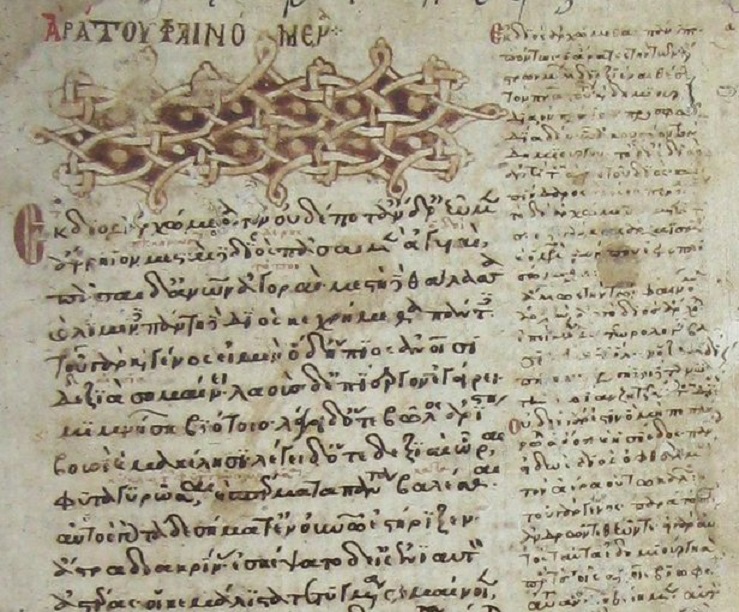Aratus
Aratus, (flourished c. 315–c. 245 bc, Macedonia) Greek poet of Soli in Cilicia, best remembered for his poem on astronomy, Phaenomena.
After the Iliad and the Odyssey, the Phaenomena was the most widely read poem in the ancient world. Its fame was immediate. It was translated into Latin by Ovid and Cicero, quoted by St. Paul in the New Testament, and was one of the few Greek poems translated into Arabic.
He resided at the courts of Antigonus II Gonatas, king of Macedonia, and Antiochus I of Syria. The Phaenomena, a didactic poem in hexameters, is his only completely extant work. Lines 1–757 versify a prose work on astronomy by Eudoxus of Cnidus (c. 390–c. 340), while lines 758–1154 treat of weather signs and show much likeness to Pseudo-Theophrastus’ De signis tempestatum. The poem became immediately popular and provoked many commentaries, the most important of which is by Hipparchus (c. 150 bc) and is still extant. In form, the Phaenomena belongs to the Alexandrian school, but the author’s Stoicism adds a strong note of seriousness. It was admired by Callimachus and enjoyed a high reputation among the Romans. Cicero, Germanicus Julius Caesar, and Avienus translated it; the two last versions and fragments of Cicero’s survive. One verse from the famous opening invocation to Zeus became even more famous because it was quoted in the New Testament (Acts 17:28): “For ‘in him we live and move and have our being’; as even some of your own poets have said, ’For we too are his offspring.’”
[1]
Further Reading
"Written in the Stars: Poetry and Philosophy in the Phaenomena of Aratus" (See Source [2])
To download it, refer to Source [3]; "Aratus’s “Phenomena,” Cleomedes’s “On the Circular Motions of the Celestial Bodies,” and Nichomachus’s “Introduction to Arithmetic”".













